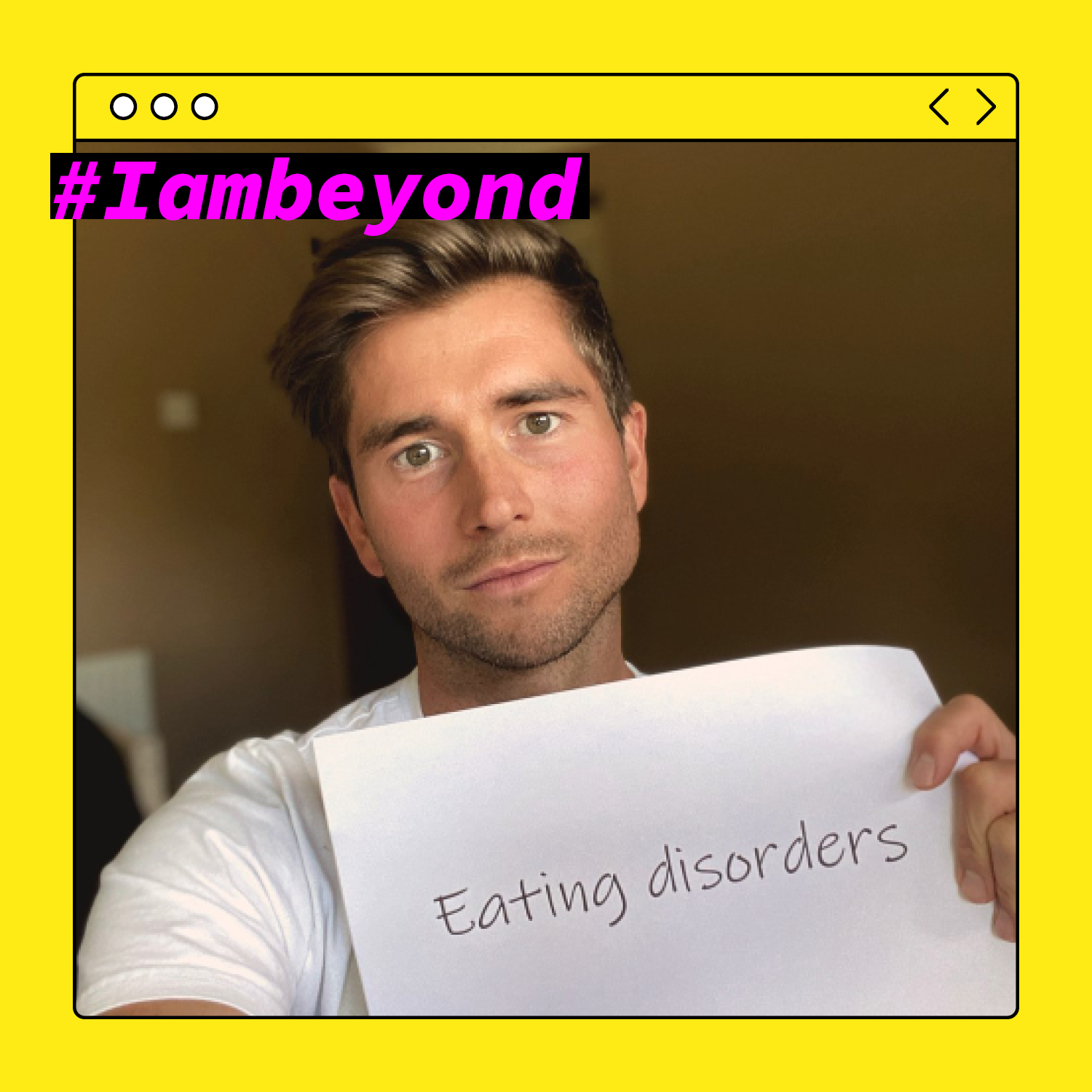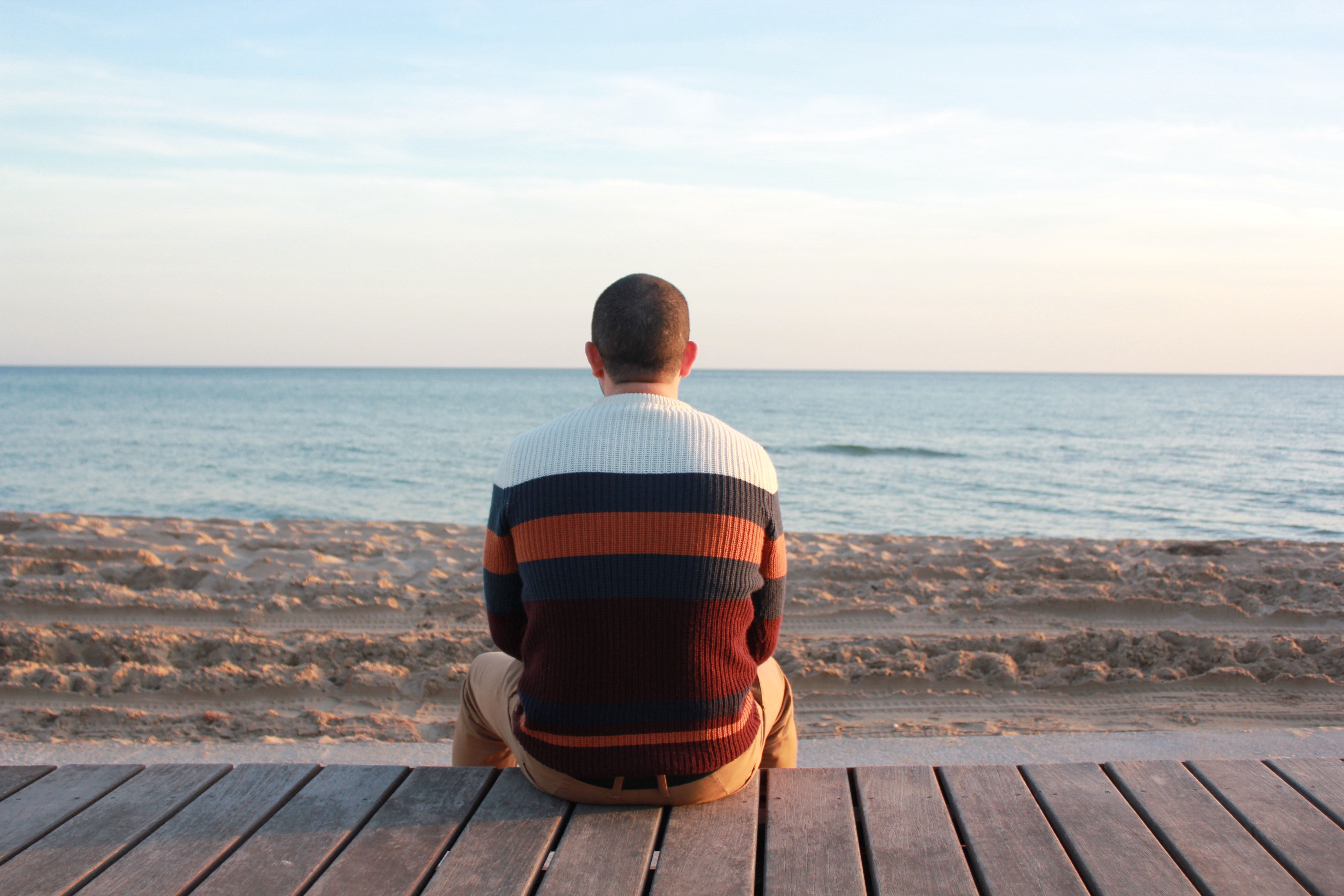I realised I was gay from about the age of 4. I hid my sexuality because fundamentally I believed that a core part of my being was flawed. This was despite having a liberal family and very loving parents.
I believe that social conditioning created those beliefs; with the media, specific commentary and bullying reaffirming them.
Hiding a core aspect of who you are, and living in fear that someone may discover your secret, naturally caused a lot of internalised stress and shame.
I turned to my first coping mechanism – food – when I was about 9 or 10 years old.
Binge eating distracted my mind. It gave me the control that I lacked over my own sexuality.
I did it in private which just added to the guilt and shame. I managed to keep it under wraps until I started becoming noticeably overweight. Considered merely as a greedy growing boy naturally led to further bullying and lower self-esteem.
Until I discovered that starving myself and excessive exercise had psychologically the same pleasurable results, but without the calories. And over one summer when I was 16 years old I actually lost about 5 stone.
I didn’t realise it then, but food was to become an obsession my entire life. And the same guilt and shame I felt regarding my sexuality was to resurface under this new guise.
Between the ages of 19 and 29 food occupied my thoughts constantly – along with dieting and losing weight. I was on a constant fluctuation between binging and starving. Not eating for days and then consuming as much as I could. After which I would of course feel dreadful. All this while holding down a very high-intensity job and partying a lot – which naturally took its tole on my poor body.
It’s easy to look back now and see that I really had nothing to be ashamed of. But it didn’t feel that way at the time.

I kept telling myself “I’ll just deal with it tomorrow.” The stigma of it all was enough to stop me from telling anyone. From doing what I knew I needed to do – get help.
‘Tomorrow’ finally came for me when I just couldn’t take the negative thoughts anymore. I’d lived with this addiction and illness for over 10 years. I finally decided to go to my GP. And I am so glad I did. Because it really does get better. Slowly but surely.
I wanted to share a letter that I wrote 5 years ago while I was undergoing therapy for my eating disorder. The letter is from my body to me.
This is intended to demonstrate that stigma can sometimes stop us from seeking the help we need. But it’s important to know that recovery is still possible, even when it seems like a distant dream. And if anyone out there feels the same way I did, please don’t give up. Keep going. The first and most important step is asking for help. Don’t wait until tomorrow. Do it today.
Dear Michael,
Things haven’t always been easy. Confusion and uncertainty regarding your sexuality from an early age instilled a hypervigilance within you. Guilt and shame resulted in a degree of self-denial, repression and evaluation.
With time, these feelings and actions manifested themselves into deep-rooted behaviours that demonstrate serious mental and physical health risks to me, your body, and your mind.
The periods of dietary restriction and starvation have had a profound impact on me. You have kept me from consuming the basic nutrients that I needed to stay healthy.
You pushed me to the extremes – exercising to the point of exhaustion in an attempt to eradicate any effects of consumption beyond that which you deemed ‘necessary’.
You thought that this control made you stronger, but it was, in fact, a weakness and an illness. I’m so glad that you can see that now.
Your will-power and sheer mental determination over-took your true evaluation of self-worth – so much that you could no longer see the damage you were doing.
Every meal you skipped, every day you went without food, you destroyed a little more of me.
The hurtful names you called me. The negative thoughts. They ran deep.
To the point now, where after 10 years of abuse, your bodily functions are close to shutting down.
To the point where you can no longer enjoy the simple pleasures of eating with friends or family and the prospect of a sexual relationship seems hopeless.
What I need you to know is that I forgive you.
You can still change. It isn’t too late. We can recover from this and learn from these challenging periods. We can continue to grow, together.
Your life will evolve, and so will I.
I am still here for you, but I need your help.
Together, we can move through this, becoming better and stronger. Together, we’ll not just survive another day, but we’ll live every day to the full.
I love you, Michael,
Your body. X
I originally wrote the above article about ‘breaking the stigma’ surrounding eating disorders. Having reflected, I actually think it goes beyond that. It’s important to start calling it out for what it is – an addiction. Remember you don’t have to be on crack to be an addict. There are so many forms and variations. And they aren’t always obvious. Addictions are often the result of a prolonged and ingrained harmful coping strategy, and are often intwined with mental illness.
Addictions tend to arise through whatever means are at your disposal – for lot’s of people that can be shopping, work or in my case, food. But not everyone can afford to constantly splash out on expensive things, or has a job they can dedicate themselves tirelessly to. Yet we often look at those who resort to drugs, alcohol and sex as ‘more serious cases’, to the point of dismay and disgust. But any addiction can be heavily rooted in suppressed unprocessed emotions, often from childhood.
It’s a slow and sticky process. A complicated, multi-layered mess to unravel. Which is why it is SO NECESSARY to feel some compassion towards anyone who is going through it.
No one WANTS to be an addict. No one WANTS to lose their self-control to a point of damaging their own lives and the lives of everyone around them.
If we pause and try to understand WHY someone is behaving a certain way, hopefully our attitude towards their ‘issues’ will change. Even more importantly, stigma, along with a lack of understanding, stops people from seeking THE HELP THEY NEED.


